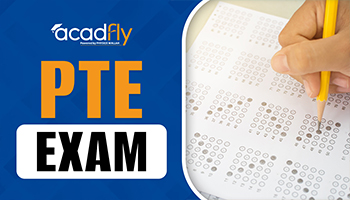

Studying in the Netherlands offers a unique blend of academic rigor and vibrant student life. Dutch universities are renowned for their diverse and engaging student activities, which are integral to the overall educational experience. From student clubs to university societies and various social activities, the Netherlands provides a well-rounded environment that enhances both personal and academic growth. This article delves into the multifaceted aspects of student life in the Netherlands, exploring the roles of student clubs, social activities, university societies, and the broader student lifestyle.
Overview of Student Life in the Netherlands
Student life in the Netherlands is marked by a harmonious balance between academic responsibilities and extracurricular engagement. Dutch universities emphasize the importance of a holistic education that extends beyond the classroom. This approach not only helps students develop essential skills but also fosters a sense of community and belonging. Whether you're interested in exploring new hobbies, joining a club, or participating in social events, the Netherlands offers numerous opportunities to enrich your university experience.
Student Clubs in Dutch Universities
Dutch universities offer a variety of student clubs catering to diverse interests, including academic societies, cultural groups, and hobby clubs. Joining these clubs is a great way to meet new people, explore personal interests, and engage in activities outside of the classroom. Many universities have a dedicated student association office to help you find and join these clubs.
Diversity and Scope of Student Clubs
Student clubs in Dutch universities are diverse and cater to a wide range of interests. These clubs play a crucial role in fostering a sense of community and providing students with opportunities to connect with peers who share similar passions. From academic and professional clubs to cultural and recreational ones, there is something for everyone.
Academic and Professional Clubs: Many universities in the Netherlands have clubs dedicated to specific fields of study or professions. These clubs often organize guest lectures, workshops, and networking events, providing students with valuable insights and connections in their chosen fields.
Cultural and Recreational Clubs: Cultural clubs celebrate various traditions and practices, offering students a chance to explore different cultures and languages. Recreational clubs focus on hobbies and interests, such as sports, arts, and music, allowing students to unwind and enjoy their free time.
How to Join and Participate
Joining a student club in the Netherlands is typically straightforward. Universities often have an online portal or student affairs office where you can find information about available clubs and how to join them. Participation is encouraged, and many clubs are open to students from all faculties and departments.
Social Activities for Students Netherlands
Students in the Netherlands can enjoy numerous social activities such as sports events, music festivals, and cultural outings. Universities and local communities often organize social events and mixers to help students integrate and socialize. Engaging in these activities is a fun way to experience Dutch culture and make new friends.
Types of Social Activities
Social activities for students in the Netherlands are varied and include everything from casual meetups to organized events and festivals. These activities are designed to help students build social connections, relieve stress, and enjoy their time outside of academic commitments.
University Events: Many Dutch universities host regular social events, including welcome parties, cultural festivals, and themed nights. These events provide a great opportunity for new students to meet their peers and become acclimated to university life.
Local Community Activities: Students are also encouraged to engage with the local community. This might include participating in city festivals, local markets, or volunteering opportunities. These activities help students integrate into Dutch society and gain a broader perspective on their host country.
Balancing Social Life and Academic Responsibilities
Balancing social activities with academic responsibilities is essential for a fulfilling student experience. Universities in the Netherlands support this balance by offering flexible schedules and encouraging time management. Students are often advised to plan their social engagements around their study commitments to avoid burnout and maintain academic performance.
University Societies Netherlands
University societies in the Netherlands cover various fields including academic, professional, and recreational interests. These societies provide networking opportunities, support academic growth, and foster a sense of community among students. They often organize workshops, guest lectures, and social events related to their focus areas.
Role and Function of University Societies
University societies in the Netherlands serve as a bridge between students and the broader university community. These societies often focus on specific interests or causes, providing students with a platform to engage in activities that align with their passions and career goals.
Professional Societies: These societies are linked to specific career paths or industries, offering students access to industry professionals, career development resources, and internship opportunities. They play a crucial role in preparing students for their future careers.
Interest-Based Societies: Interest-based societies focus on hobbies, cultural activities, or social issues. They provide a space for students to explore their interests, develop new skills, and contribute to causes they care about.
How to Get Involved
Getting involved in university societies is similar to joining student clubs. Universities often have information sessions or fairs where students can learn about various societies and sign up for membership. Active participation in these societies can significantly enhance the student experience and provide valuable networking opportunities.
Student Lifestyle in Netherlands
The student lifestyle in the Netherlands is known for its balance between academics and social life. Students typically enjoy a relaxed atmosphere with access to a range of leisure activities. Housing is often in student accommodations, and many students commute by bike, which is a common mode of transport.
Daily Life and Routine
The student lifestyle in the Netherlands is characterized by a blend of academic work and leisure activities. Students typically follow a structured daily routine that includes attending classes, studying, and participating in extracurricular activities. The Dutch emphasis on work-life balance ensures that students have ample time for relaxation and socialization.
Accommodation: Many students live in university-managed housing or shared apartments. This arrangement often fosters a sense of community and provides opportunities for social interaction with fellow students.
Transportation: The Netherlands boasts an efficient public transportation system, making it easy for students to travel between their university, accommodation, and social activities. Bicycles are also a popular mode of transportation among students.
Cultural and Social Norms
Understanding Dutch cultural and social norms can enhance the student experience. The Netherlands is known for its open-minded and egalitarian society. Students are encouraged to engage in discussions, express their opinions, and participate in a diverse range of activities.
Extracurricular Activities Netherlands
Extracurricular activities in the Netherlands include sports, arts, volunteering, and more. Many universities encourage students to participate in these activities to enrich their university experience. These activities offer opportunities for personal development, networking, and relaxation.
Importance and Benefits
Extracurricular activities in the Netherlands are an integral part of the student experience. They offer numerous benefits, including the development of soft skills, opportunities for personal growth, and a chance to make new friends. Participating in extracurricular activities can also enhance a student's resume and increase employability.
Skill Development: Activities such as leadership roles in student clubs or organizing events help students develop valuable skills such as teamwork, communication, and problem-solving.
Networking Opportunities: Extracurricular activities provide opportunities to network with peers, professors, and professionals. These connections can be valuable for future career prospects and academic collaborations.
Challenges and Considerations
International students in the Netherlands might face challenges such as adapting to a new culture, managing academic pressures, and handling practical issues like finding accommodation. It's important to seek support from student services and connect with other students to navigate these challenges effectively.
Potential Challenges
While student life in the Netherlands is enriching, it is not without its challenges. Balancing academics with extracurricular activities can be demanding, and students may experience stress or burnout if not managed properly. Additionally, adjusting to a new culture and environment can be challenging for international students.
Time Management: Effective time management is crucial for balancing academic responsibilities with extracurricular activities. Students should prioritize their tasks and avoid overcommitting to ensure a healthy balance.
Cultural Adjustment: International students may face challenges in adapting to Dutch cultural norms and social practices. Seeking support from university resources, such as counseling services or international student offices, can be helpful in overcoming these challenges.
Positive Aspects
Despite the challenges, the positive aspects of student life in the Netherlands far outweigh the difficulties. The vibrant student community, diverse activities, and supportive university environment contribute to a rewarding and fulfilling experience.
Community Support: The strong sense of community among students and the availability of support services can help ease the transition and enhance the overall experience.
Personal Growth: The opportunities for personal development and the chance to engage in a wide range of activities contribute to a well-rounded and enriching student life.
Conclusion
Student life in the Netherlands is characterized by a dynamic blend of academic pursuits and vibrant extracurricular activities. From joining student clubs and participating in social events to engaging in university societies and exploring the local culture, students have ample opportunities to enrich their university experience. By balancing their academic responsibilities with social and recreational activities, students can enjoy a fulfilling and well-rounded lifestyle in the Netherlands.
Frequently Asked Questions
1. What are some popular student clubs in Dutch universities?
2. How can I find social activities for students in the Netherlands?
3. What are university societies in the Netherlands and how do they function?
4. How does student lifestyle in the Netherlands differ from other countries?
5. What are the benefits of participating in extracurricular activities in the Netherlands?









